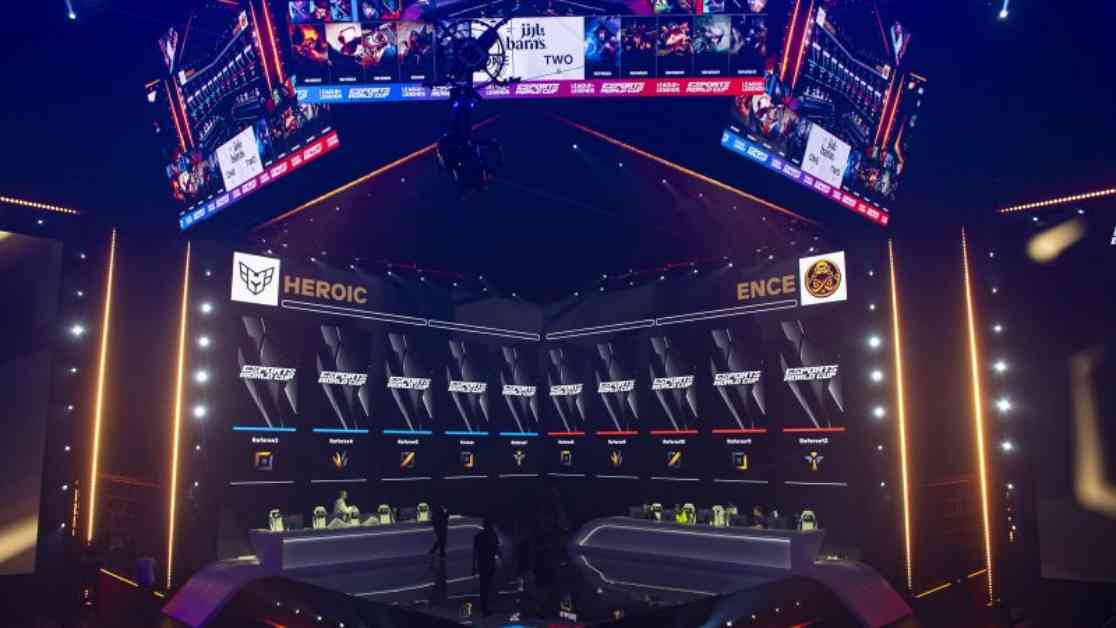In the heart of Saudi Arabia’s capital, a groundbreaking moment for esports is unfolding with the Esports World Cup (EWC). This event has brought together professional gamers, publishers, and fans from around the world for an eight-week gaming extravaganza. The EWC has set a new standard with a prize pool exceeding $60 million, sparking both excitement and concern within the industry.
Ralf Reichert, CEO of the Esports World Cup Foundation organizing the event, aims to unite the esports industry with this spectacle. The EWC features some of the world’s top organizations competing across 21 esports titles, including well-known names like T1, FlyQuest, and Fnatic. The tournament offers a variety of prizes, including player bounties and rewards for overall performance.
While the EWC brings a much-needed boost to the esports scene, it also raises questions about the industry’s ties to Saudi Arabia. The nation has been actively investing in esports, aiming to diversify its economy and become a global gaming hub. This move has drawn criticism from human rights organizations concerned about Saudi Arabia’s restrictive policies on freedom of speech and treatment of minorities.
The EWC has also sparked a debate within the esports community about Saudi Arabia’s involvement. While some organizations have chosen to participate in the tournament, others have opted out due to ethical concerns. Team Liquid, for example, released a statement explaining their decision to compete at the EWC while acknowledging the complexities of engaging with Saudi Arabia.
Despite the controversy, the EWC presents an opportunity for esports organizations to grow and expand into new territories. The EWC Club Program, launched by the Esports World Cup Foundation, aims to support clubs worldwide through annual payouts. This initiative seeks to promote sustainable planning and enable organizations to participate in the tournament more effectively.
The EWC’s impact on the esports industry remains to be seen, but it is clear that Saudi Arabia’s involvement is reshaping the landscape. The nation’s significant investments in gaming have positioned it as a key player in the global esports market. As the industry continues to evolve, questions about ethics, human rights, and inclusivity will remain at the forefront of the conversation. Only time will tell how the esports community navigates these complex issues and shapes the future of competitive gaming.









